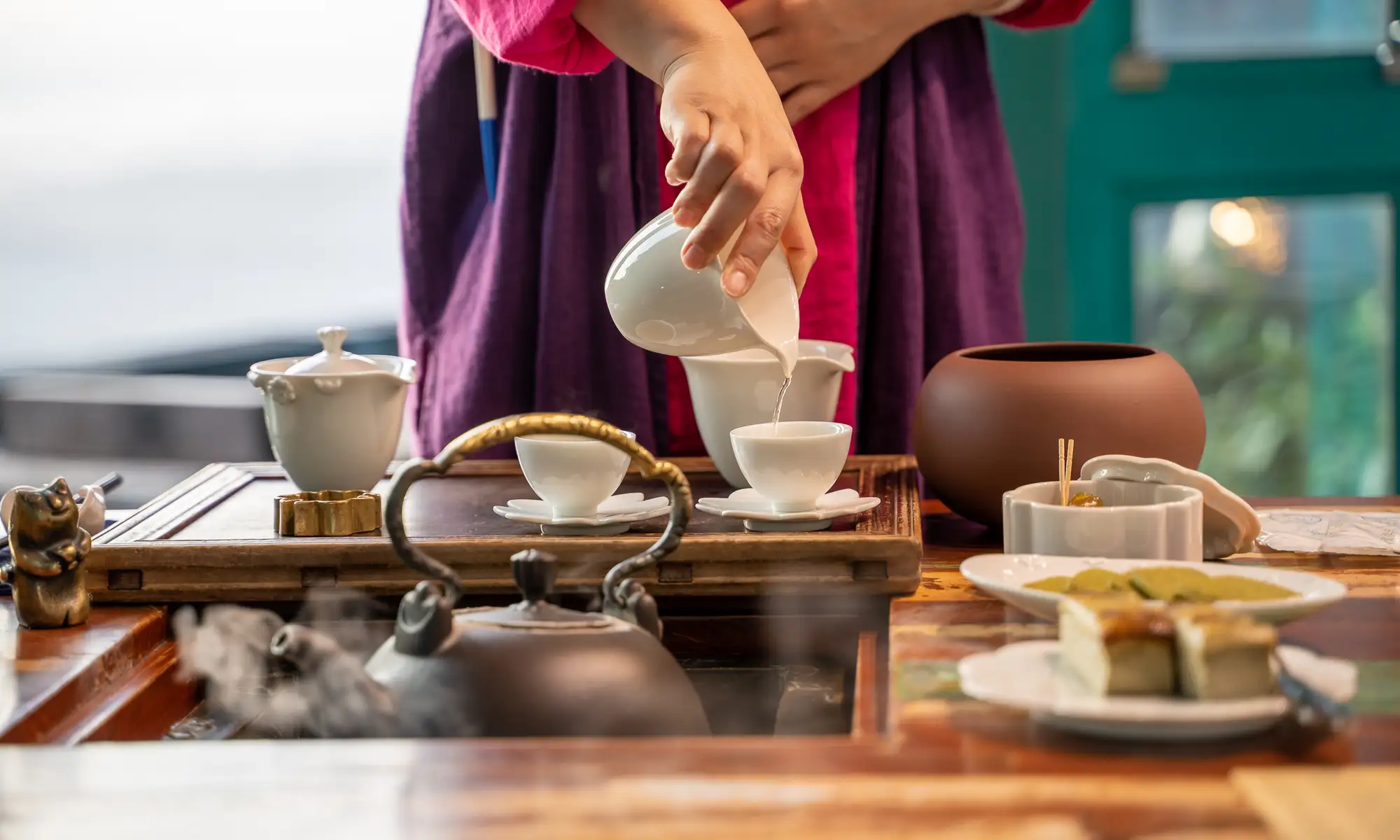Taiwanese Tea Houses are spaces where visitors can focus on the experience of brewing and tasting loose leaf tea leaves using gong fu style brewing. Options include traditional 100-year-old establishments, modernist tea houses, casual afternoon tea shops, wabi-sabi influenced tea spaces, and even farmside shops run by farmers themselves. Recently, the 2021 Netflix drama Gold Leaf, which chronicles the rise of the thriving tea trade in 1950s Taiwan, has led to increased local interest in visiting and drinking in authentic tea houses, and as a result, both traditional and modern tea houses are seeing an influx of new patrons.
Due to the sheer number and variety of tea houses in Taiwan—if you include ‘afternoon tea’ shops there are easily hundreds in every city and even more in the countryside—it’s impossible to rank them, but here are our picks for unique and highly worthwhile tea houses to visit while in Taiwan.
Hermit’s Hut in Xinyi District, Taipei City
A Modern and Minimalist Tea House
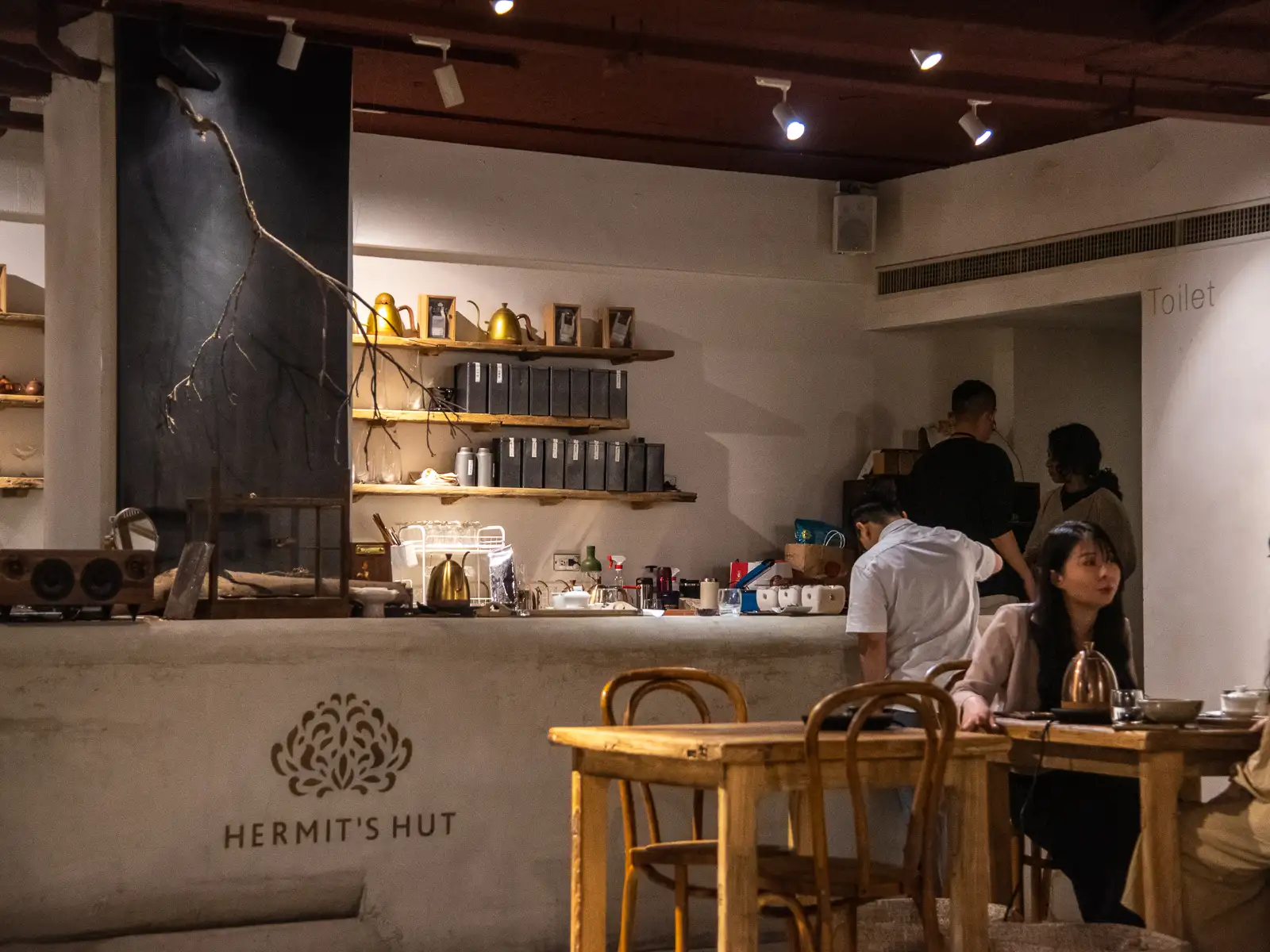
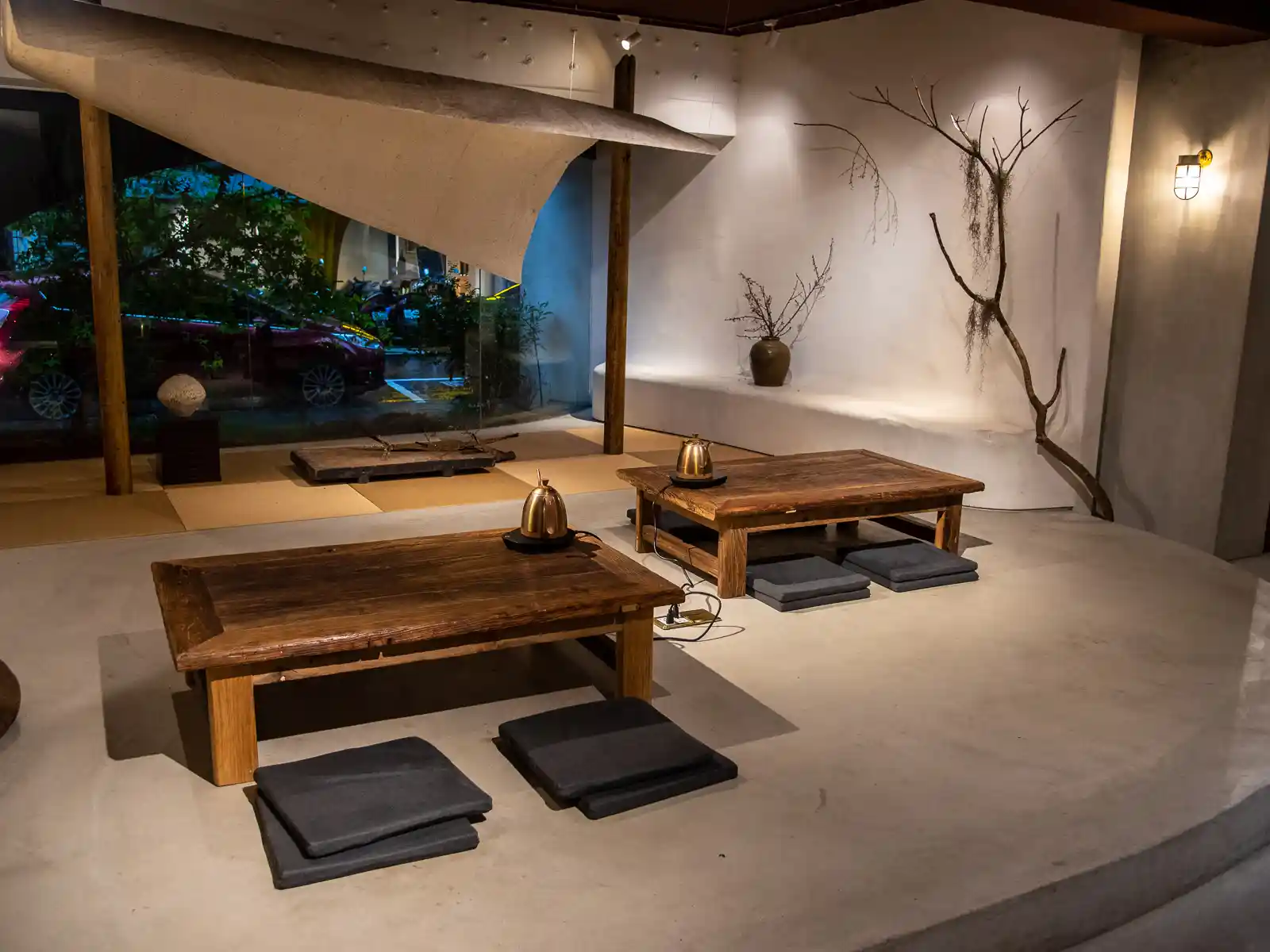
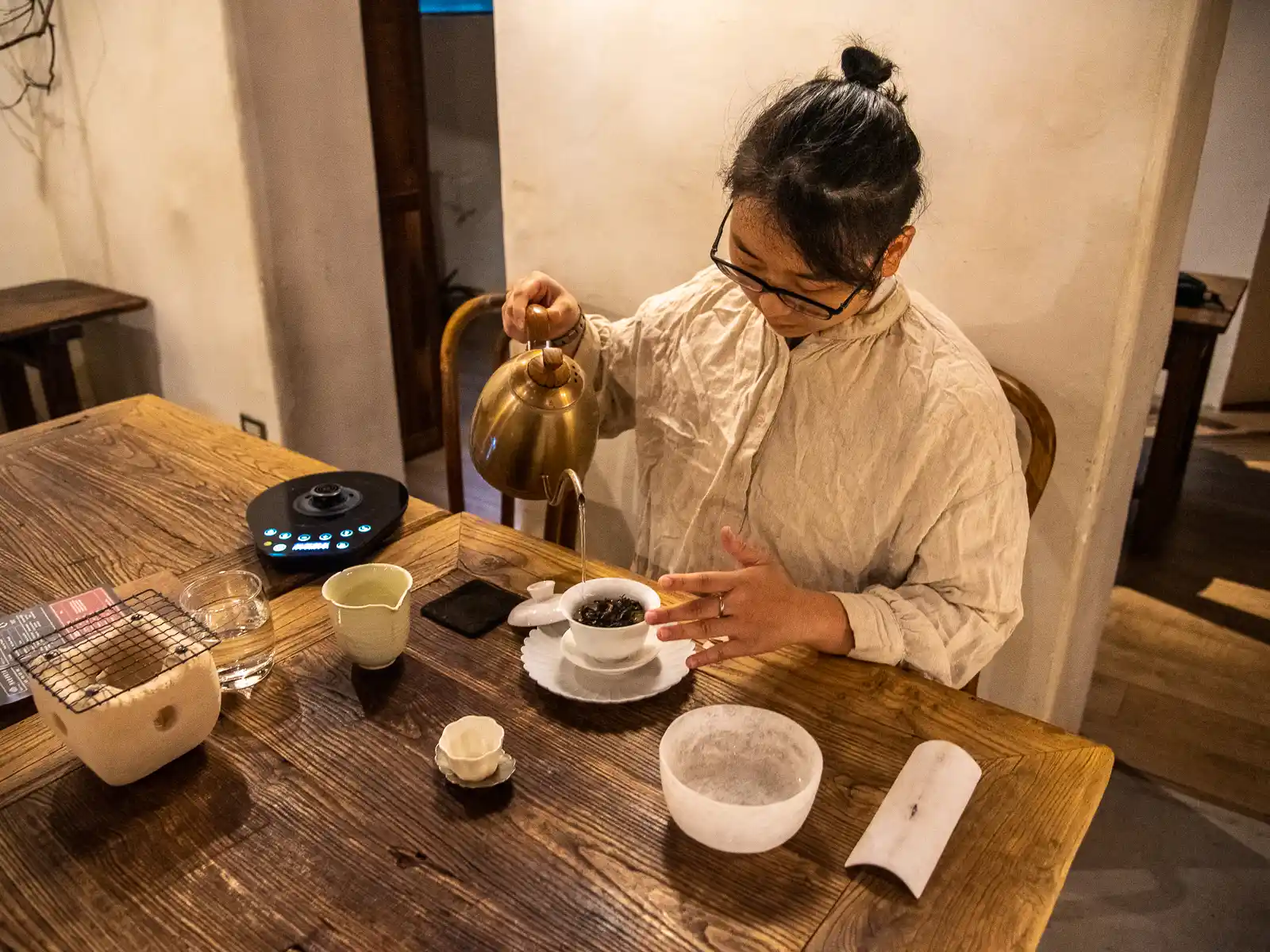
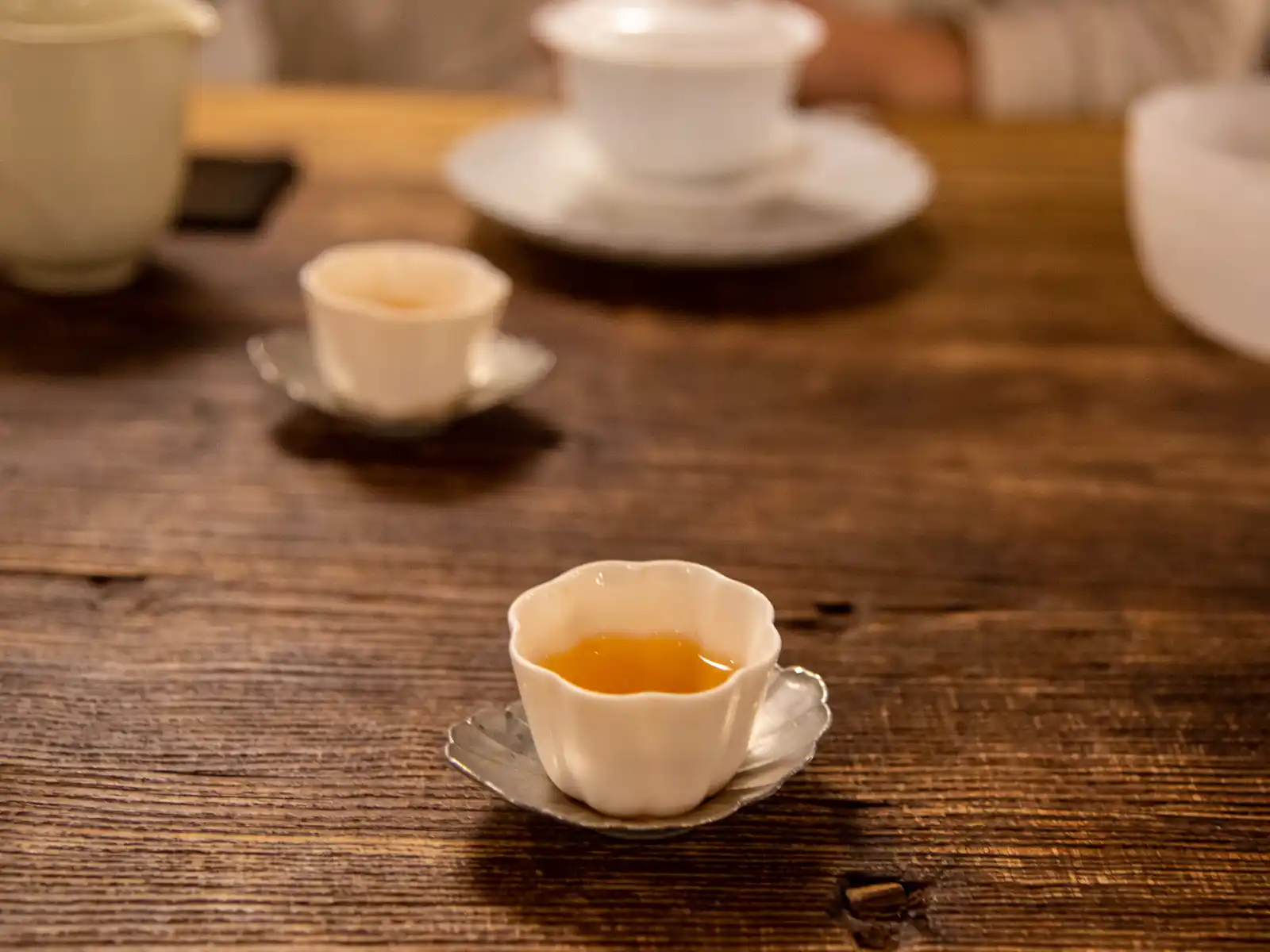
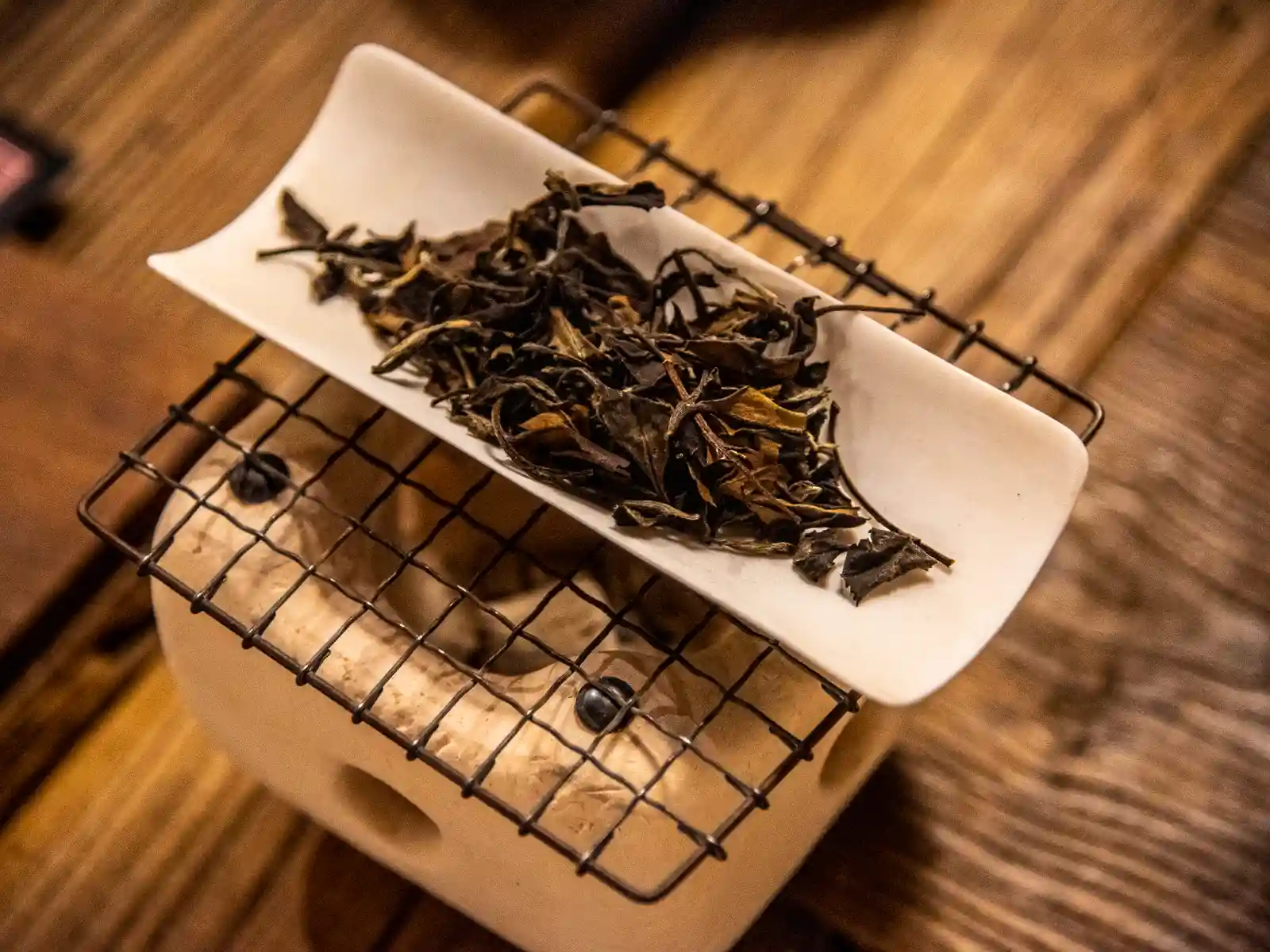
Hermit’s Hut feels very much like a communal space for learning about and enjoying Taiwanese tea. Operated by tea collector Vicky Chien, the ‘hut’ serves as a retail shop as well as sanctuary where tea may be enjoyed in the traditional style: slowly, and with care—something that has all but disappeared with Taipei’s ubiquitous hand-shaken tea shops. A minimalist but not overly sterilized white-walled interior, simple wooden furniture, and decorations made of natural materials combine to create a sense of stillness, and homeliness, and ground one in preparation of the tea ceremony.
Tea options include white tea from the owner’s own collection, as well as organic and indigenous options. Reservations are required, and evening reservations include the allure of an additional menu option consisting of tea-infused cocktails. Also, for those who are having tea for the first time, staff will perform the first round of a tea ceremony and explain the importance of each step.
Wistaria Tea House in Da’an District, Taipei City
Downtown Taipei’s Rustic Meeting Place
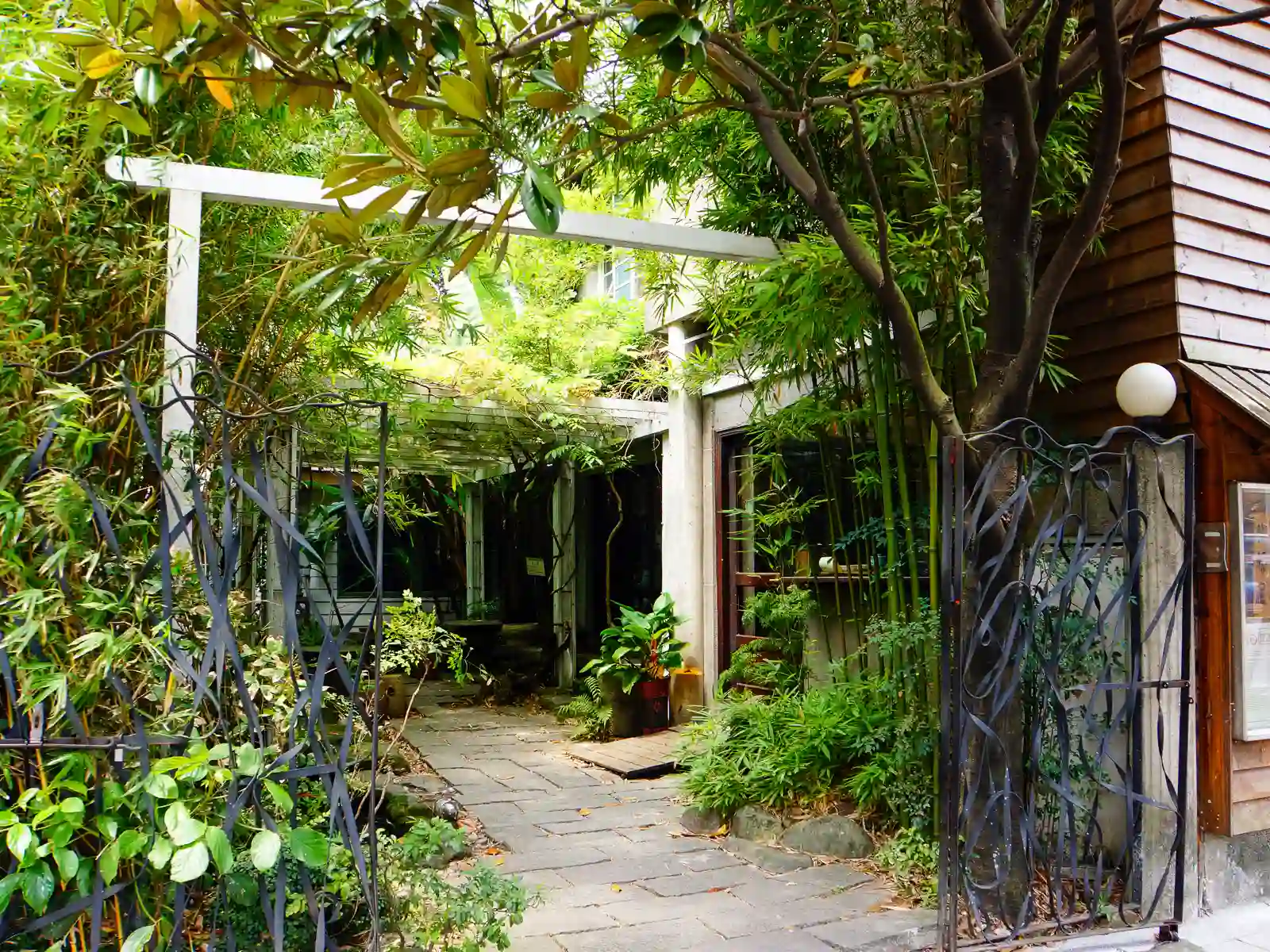
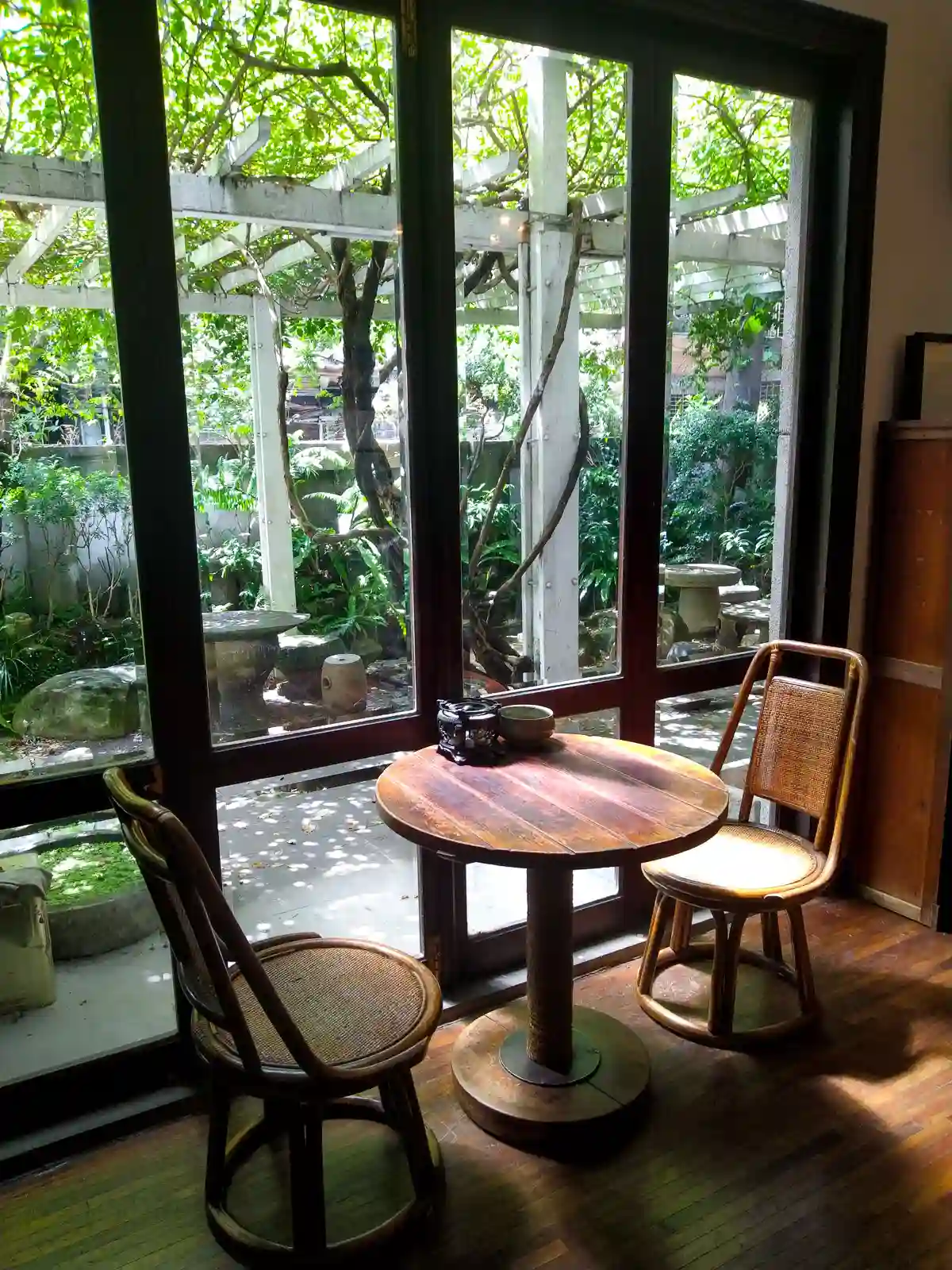
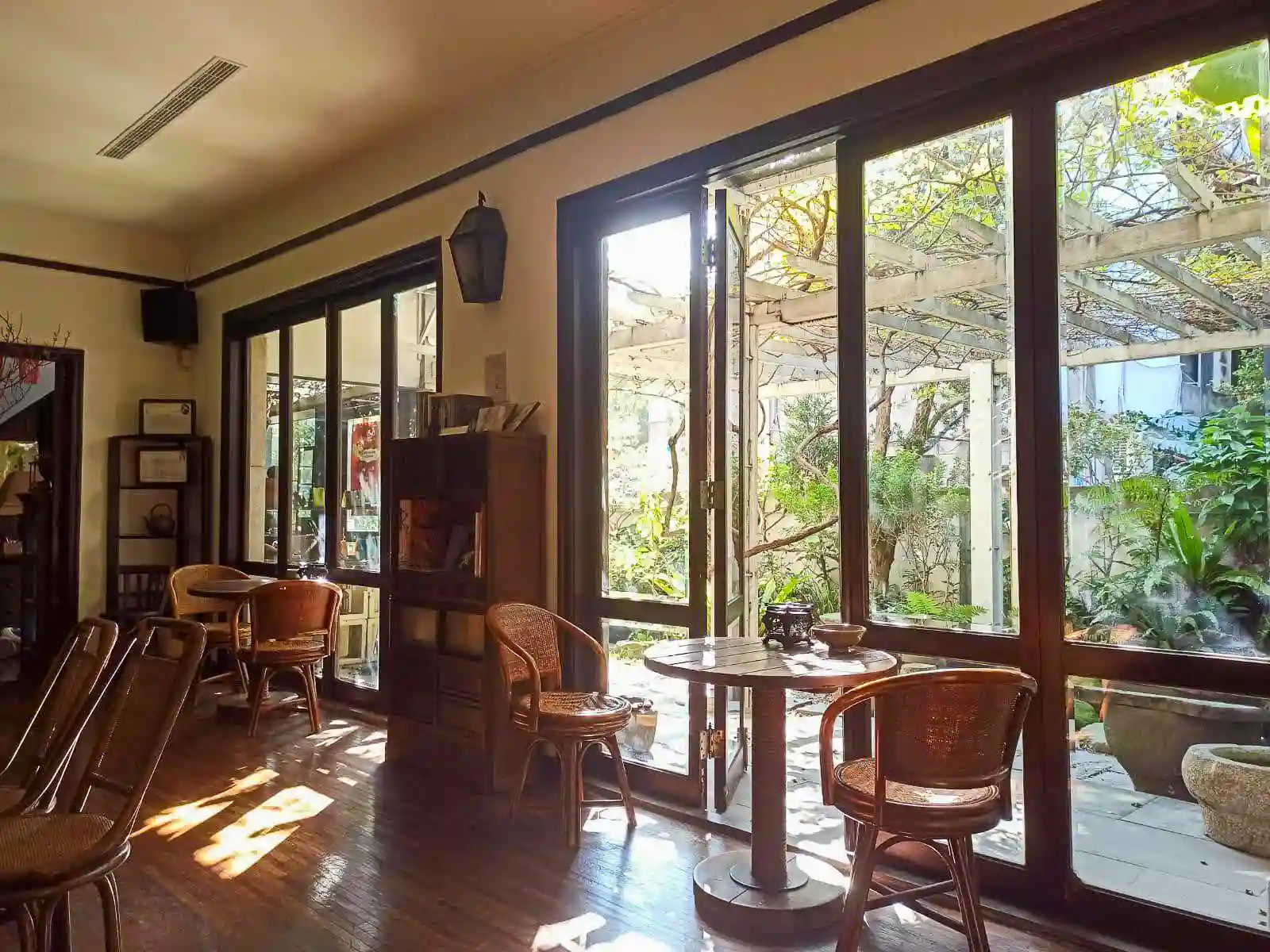
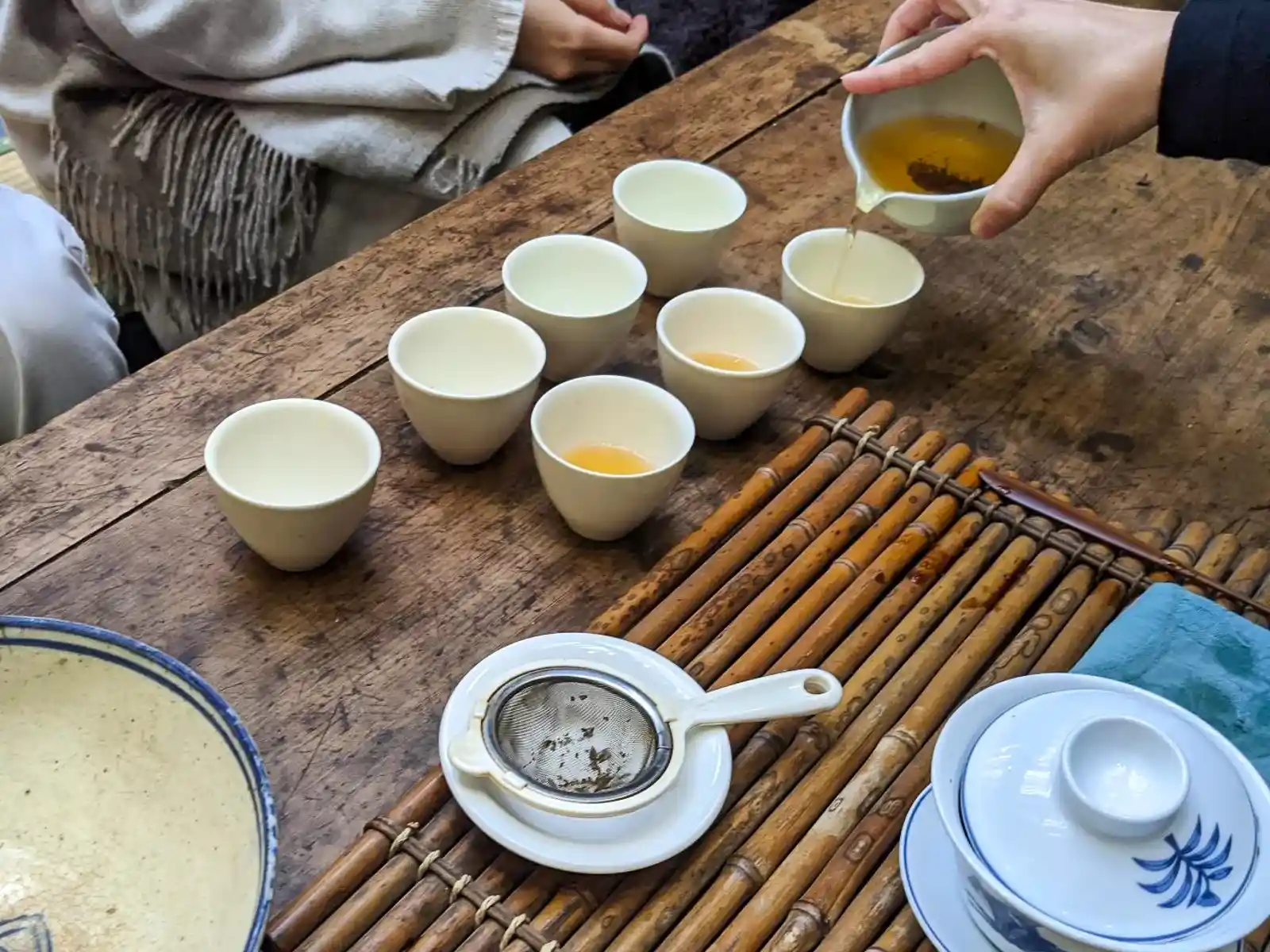
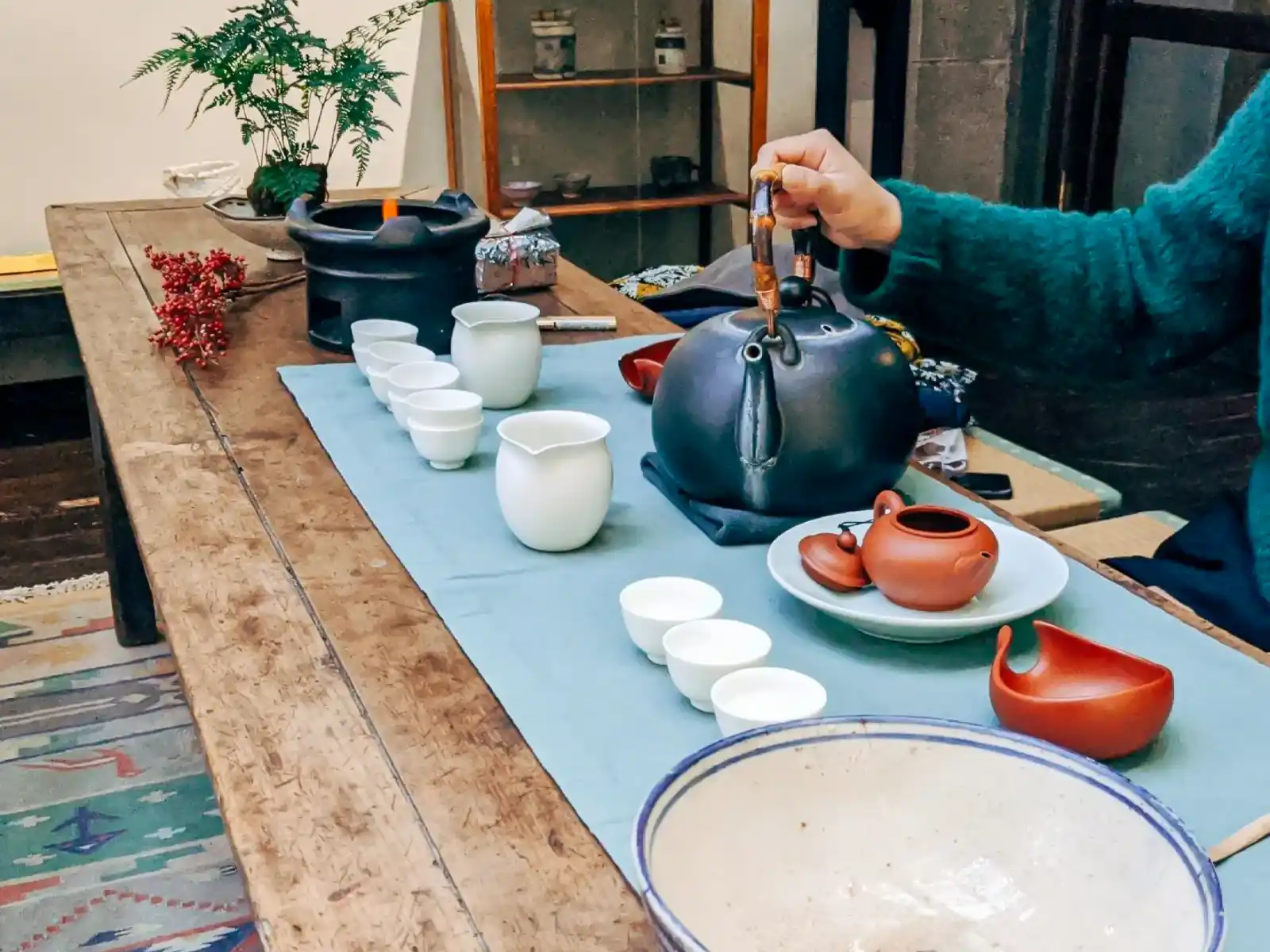
Wistaria Tea House has a rich history that dates back to 1981 when it was established by its first owner, Chou Yu. Soon after opening, the tea house has become a popular meeting place for Taipei’s literati, artists, academics and political dissidents. This tradition continues to the present day with the Wistaria Cultural Association, which continues to ensure the space is a focal point of culture by hosting cultural activities and exhibitions on its second floor.
The 1920s era Japanese-style wooden house that Wistaria Tea House occupies has been recognized as a city historic site by the Taipei City Government in 1997. This sense of history can be seen in both the architecture and dining options—both regular dining and tatami-style floor seating are available. Whatsmore, the rustic furniture and conservative use of artificial light can make the place feel like a very cozy portal-to-the-past, especially on a particularly rainy afternoon.
Wistaria offers a bilingual tea menu with a diverse selection of aged, specialty and organic teas that can be enjoyed by newcomers and tea connoisseurs alike. If needed, English-speaking staff members can expound upon each tea and demonstrate proper brewing methods. And, the lobby includes a wonderful display of tea brewing equipment, artisan tea pots, and hard-to-come-by tea leaves.
Zhao Zhao Tea Lounge in West District, Taichung City
Taichung’s Trendiest Tea House
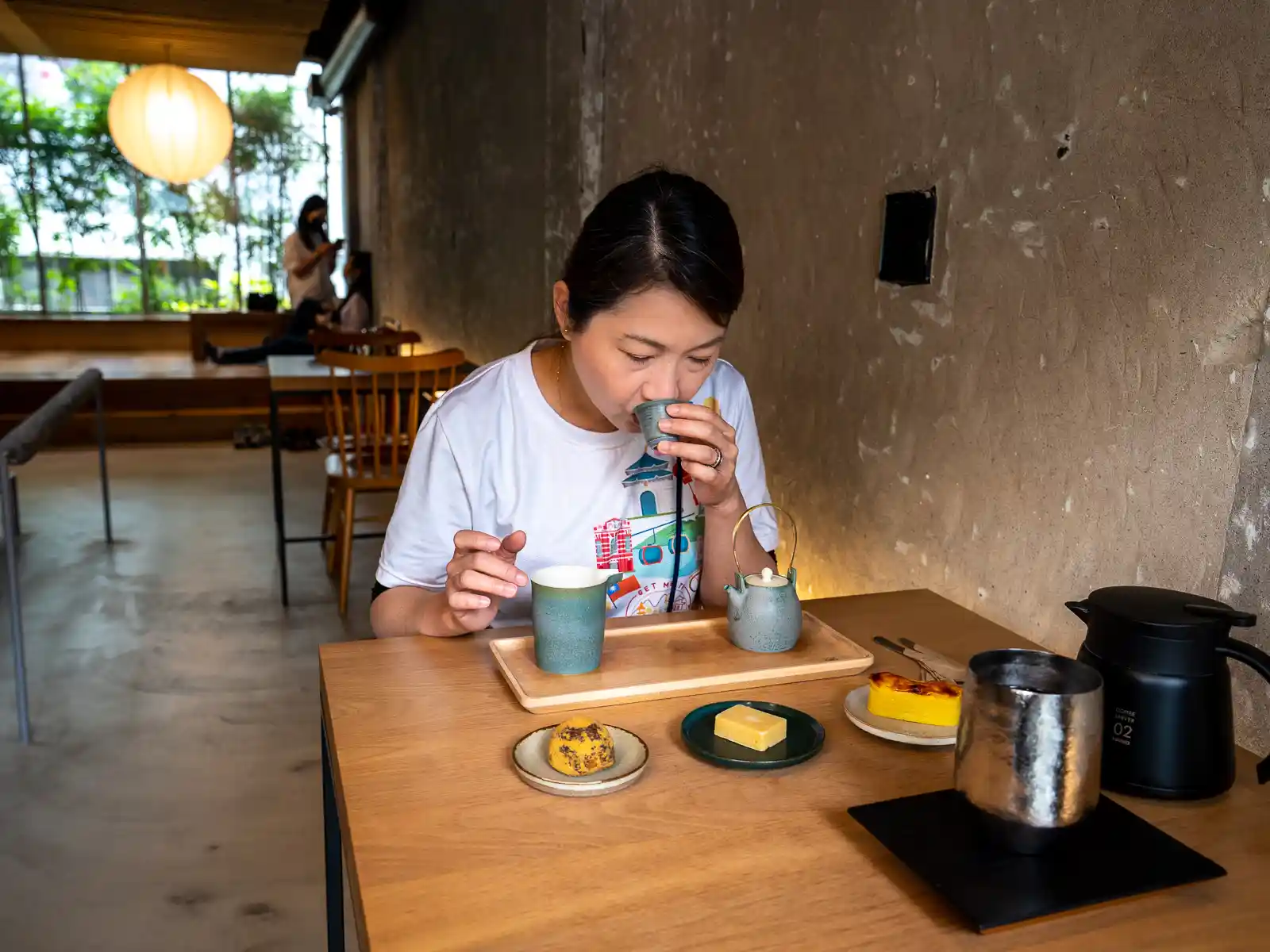
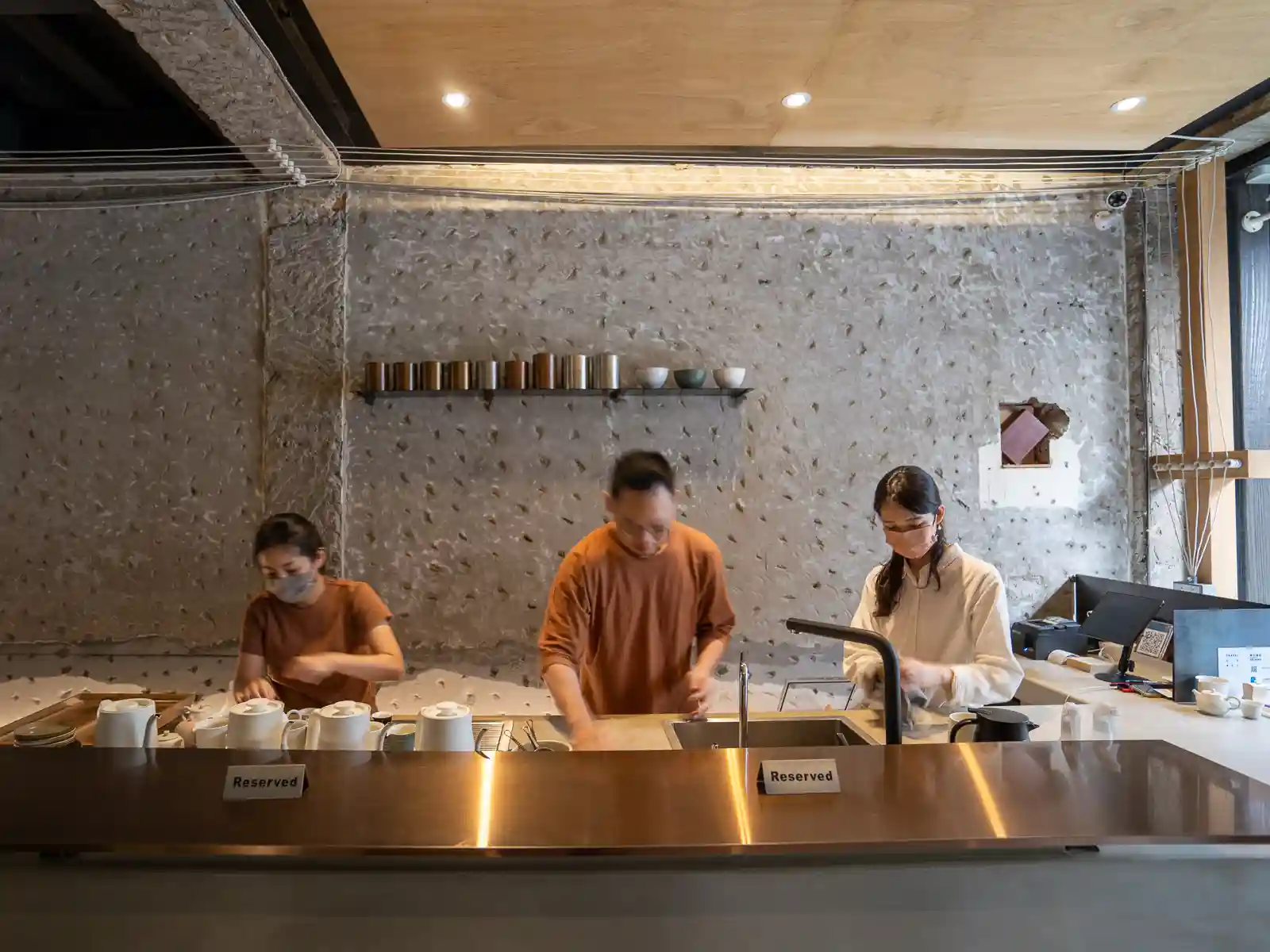
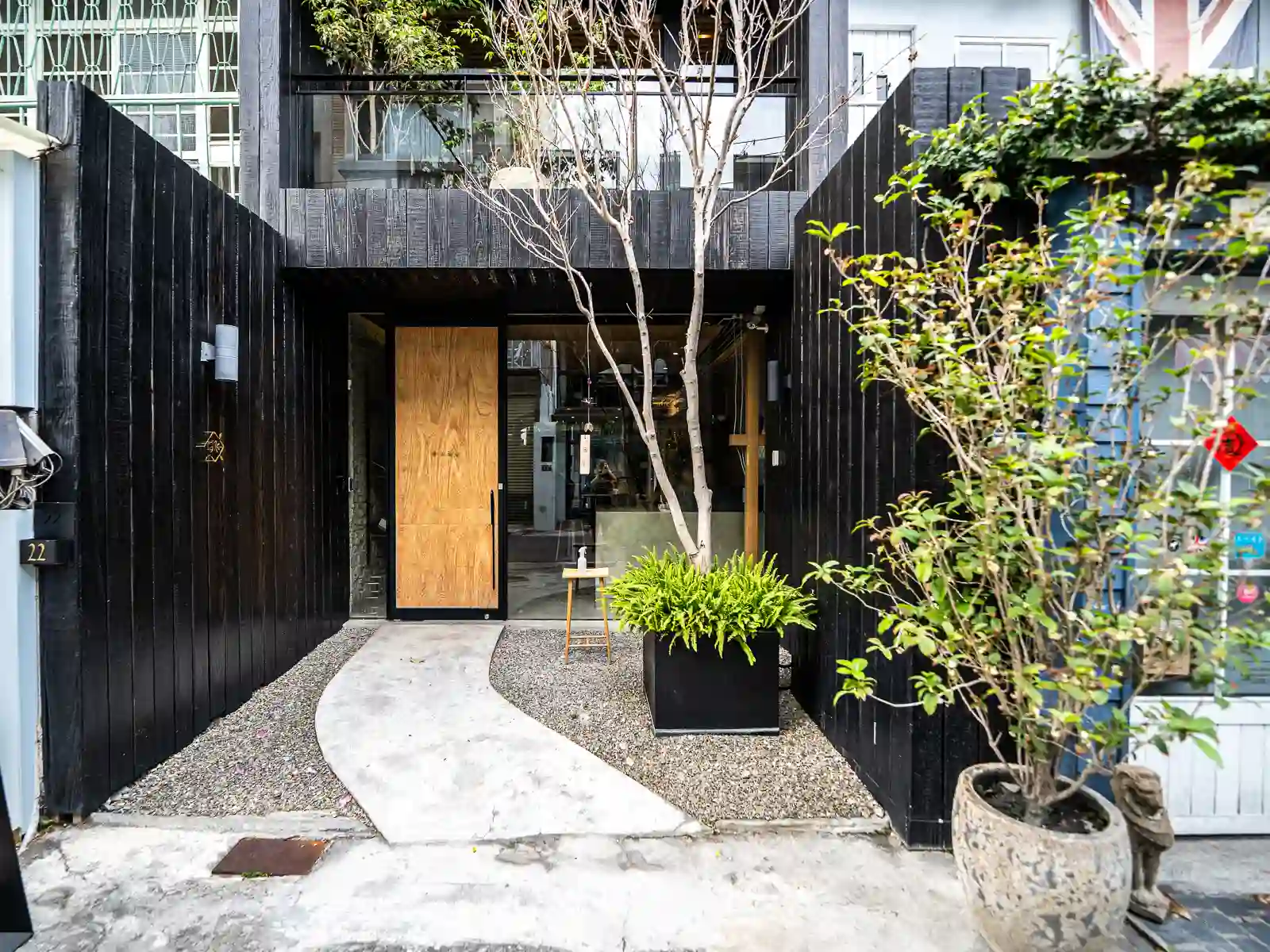
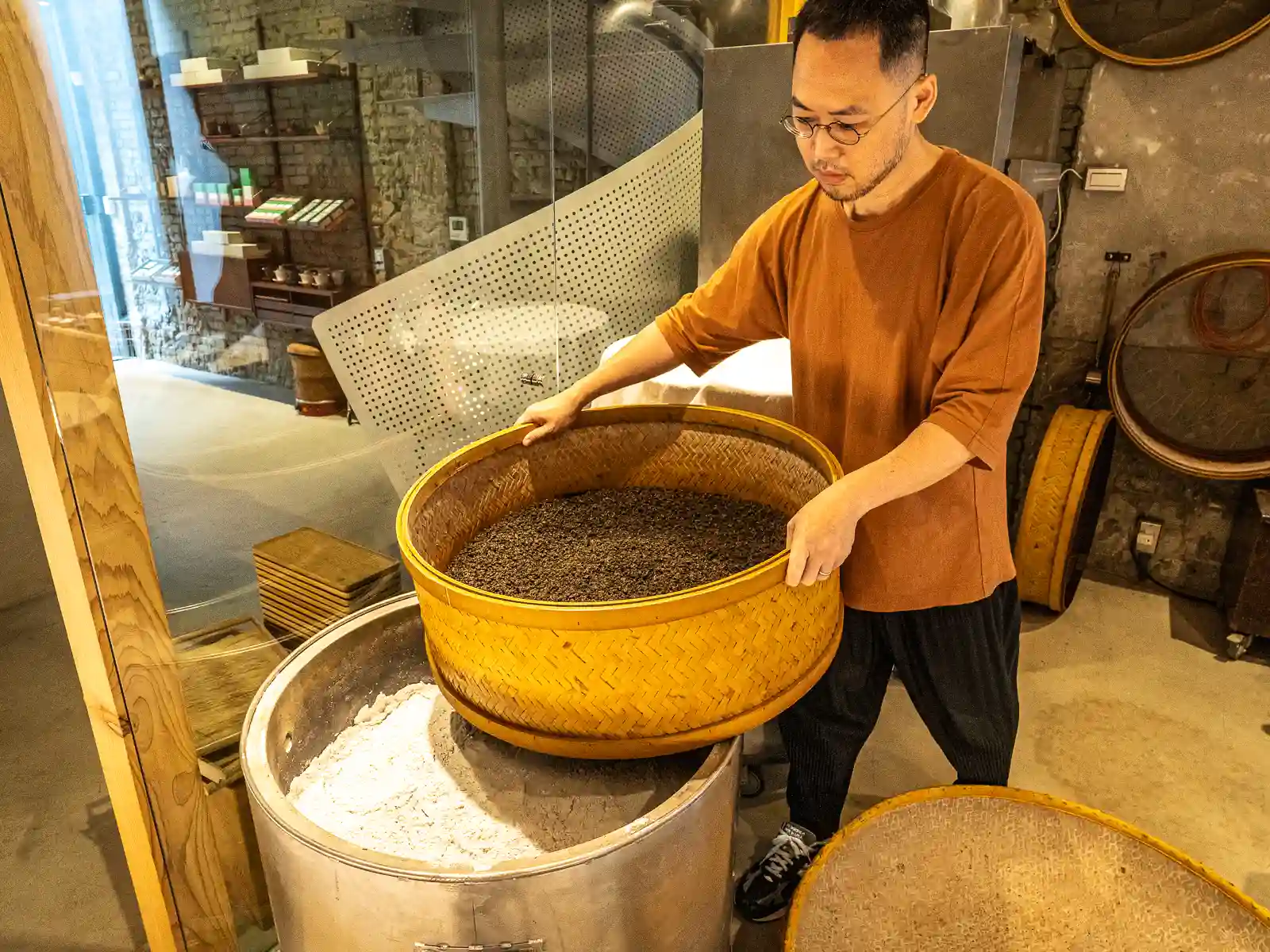
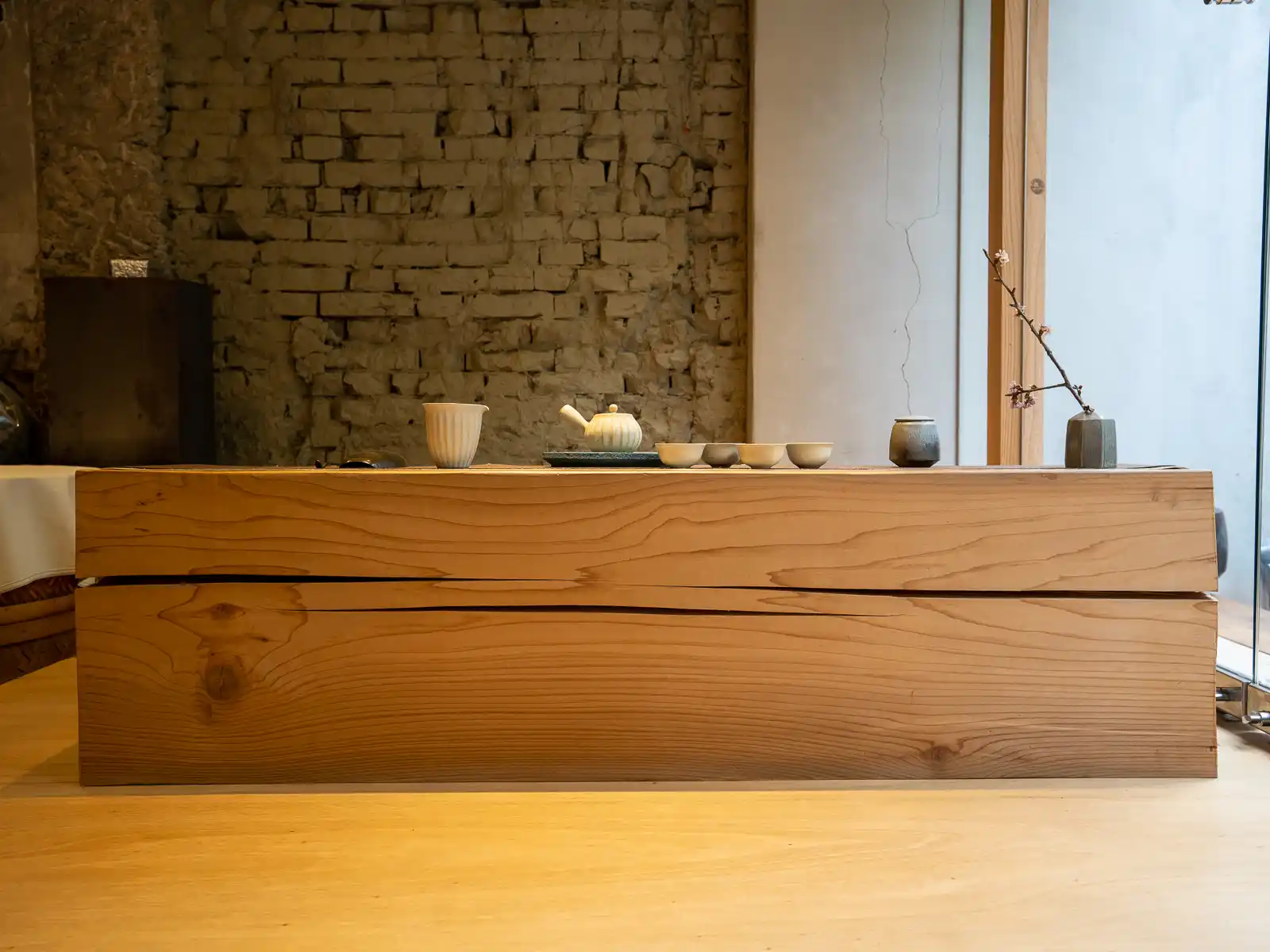
A 1950s apartment with all of its interior walls knocked down to reclaim abundant natural light, then rebuilt from the ground up in a contemporary aesthetic with minimalist decor using only concrete, wood and glass—this is the ‘where’ of Zhao Zhao Tea Lounge.
As for the ‘who’, owner Zongjun Chen dreamed of sharing the experience of roasting tea while helping his father roast tea leaves as a child. This dream has come to fruition now that, with the help of a local architecture firm, the first floor of this traditional apartment has been designed to feature a central tea-roasting area. That means guests walking by, or sitting in the adjacent tea room can have a near-first-hand experience in tea roasting.
The tea room next to the roasting area is the best place to take in the aromas that are released during the roasting process, however, for those wishing to appreciate the tea houses modernist architecture might consider taking a trip to the second floor, where bar-style, table-style, and floor-style seating is available. And, don’t forget to appreciate the reclaimed backyard which is now a lush garden.
Jiufen Tea House in Ruifang District, New Taipei City
A Picturesque and Cozy Mountainside Tea House
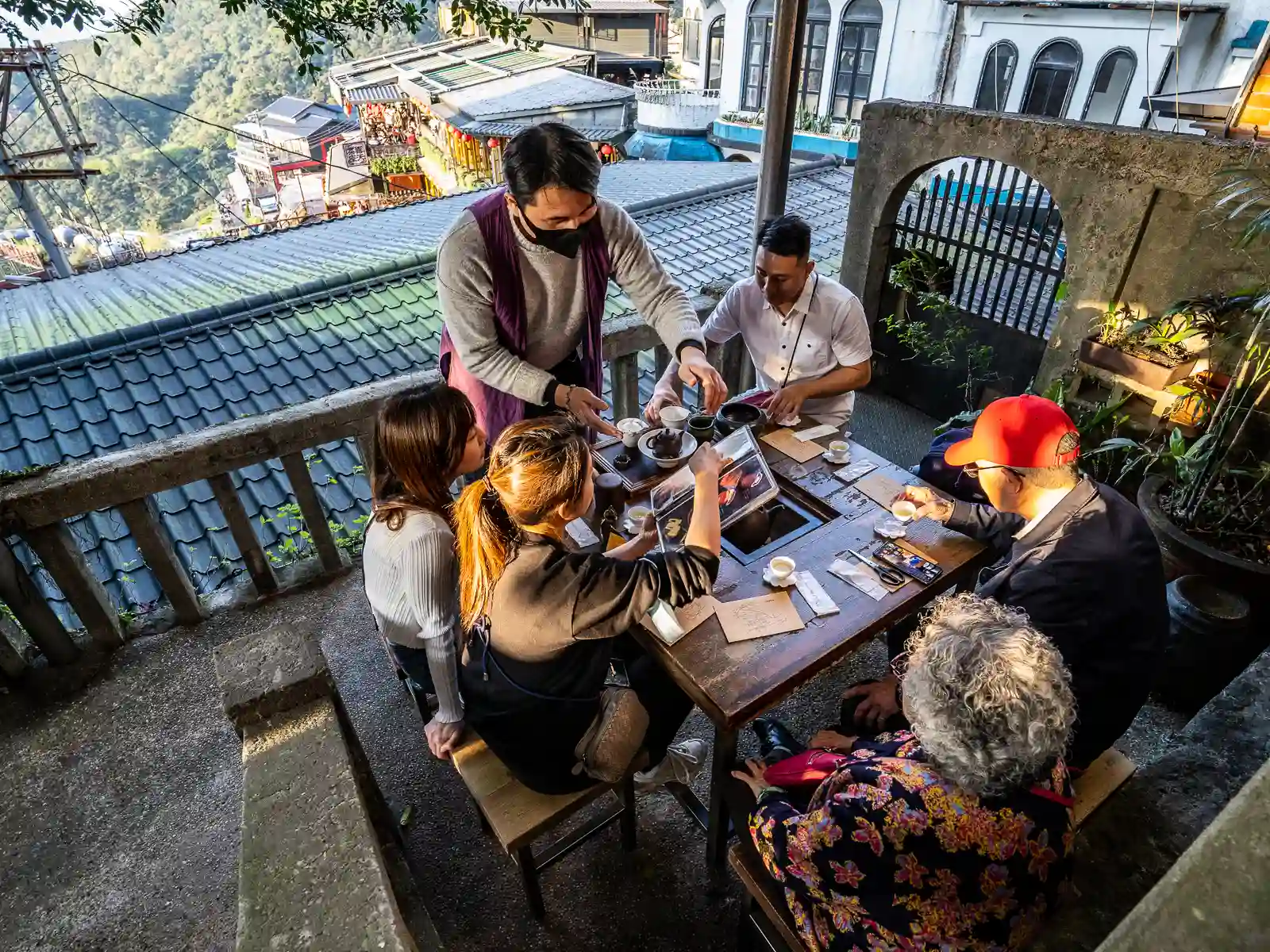
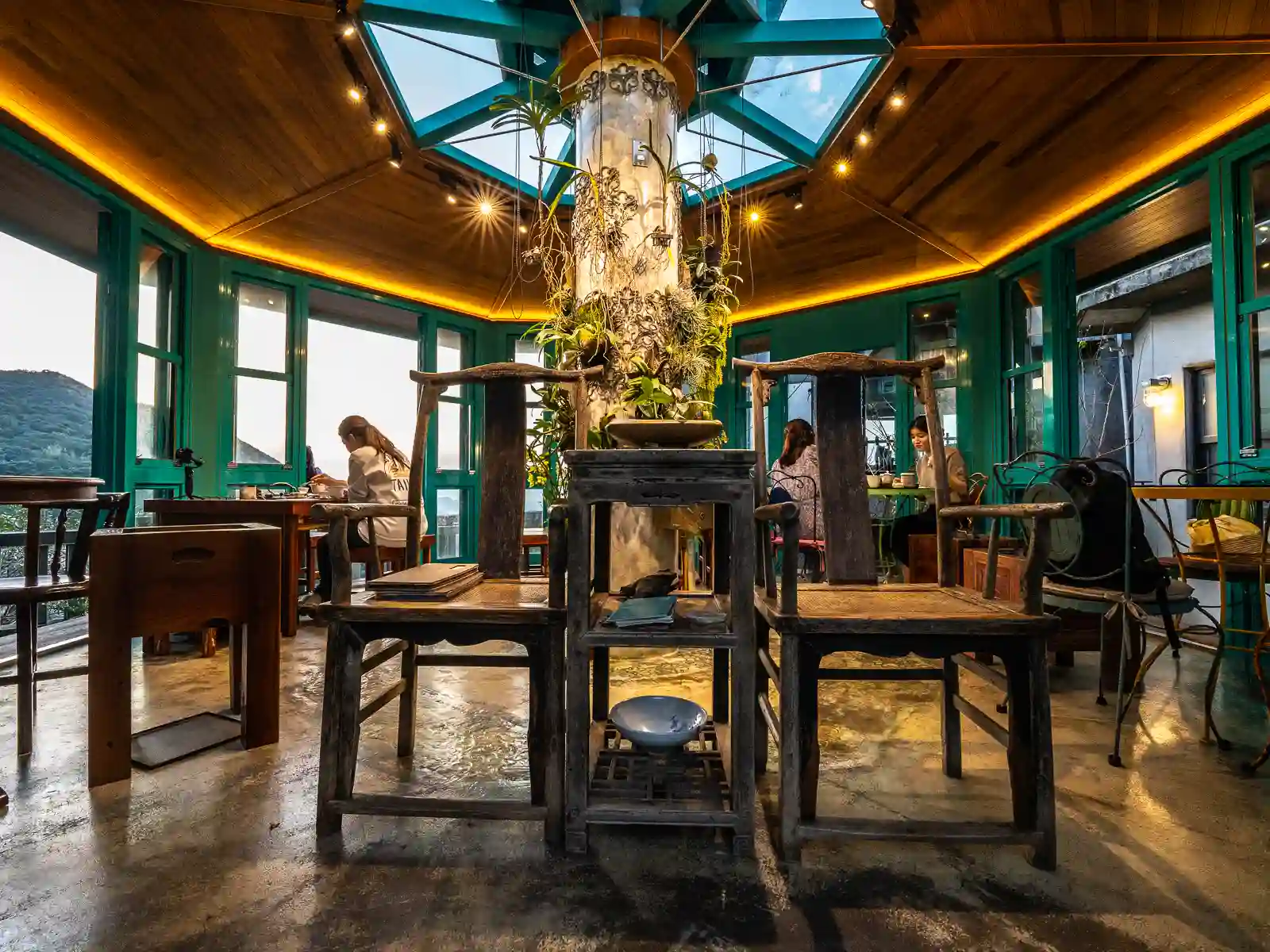
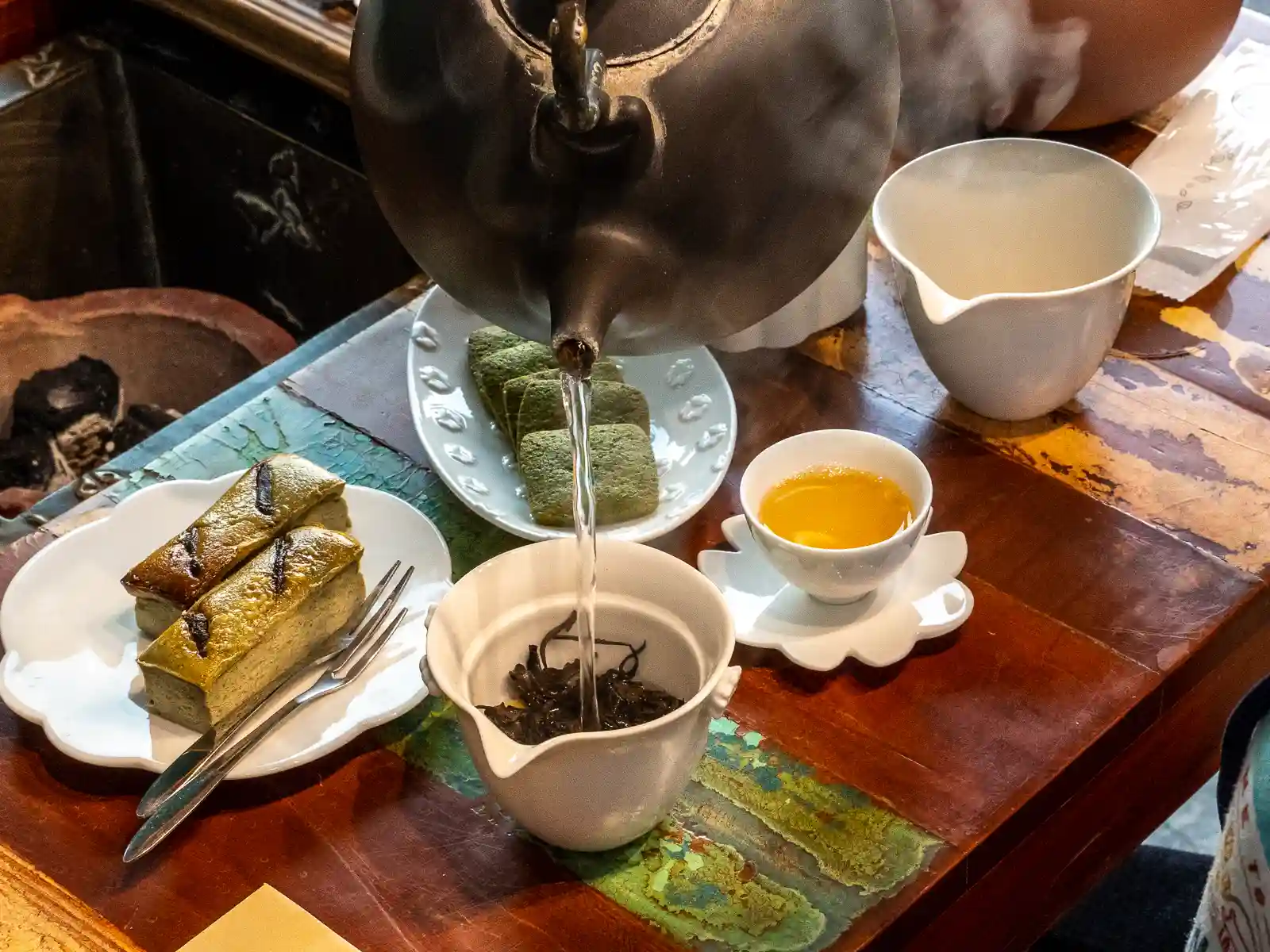
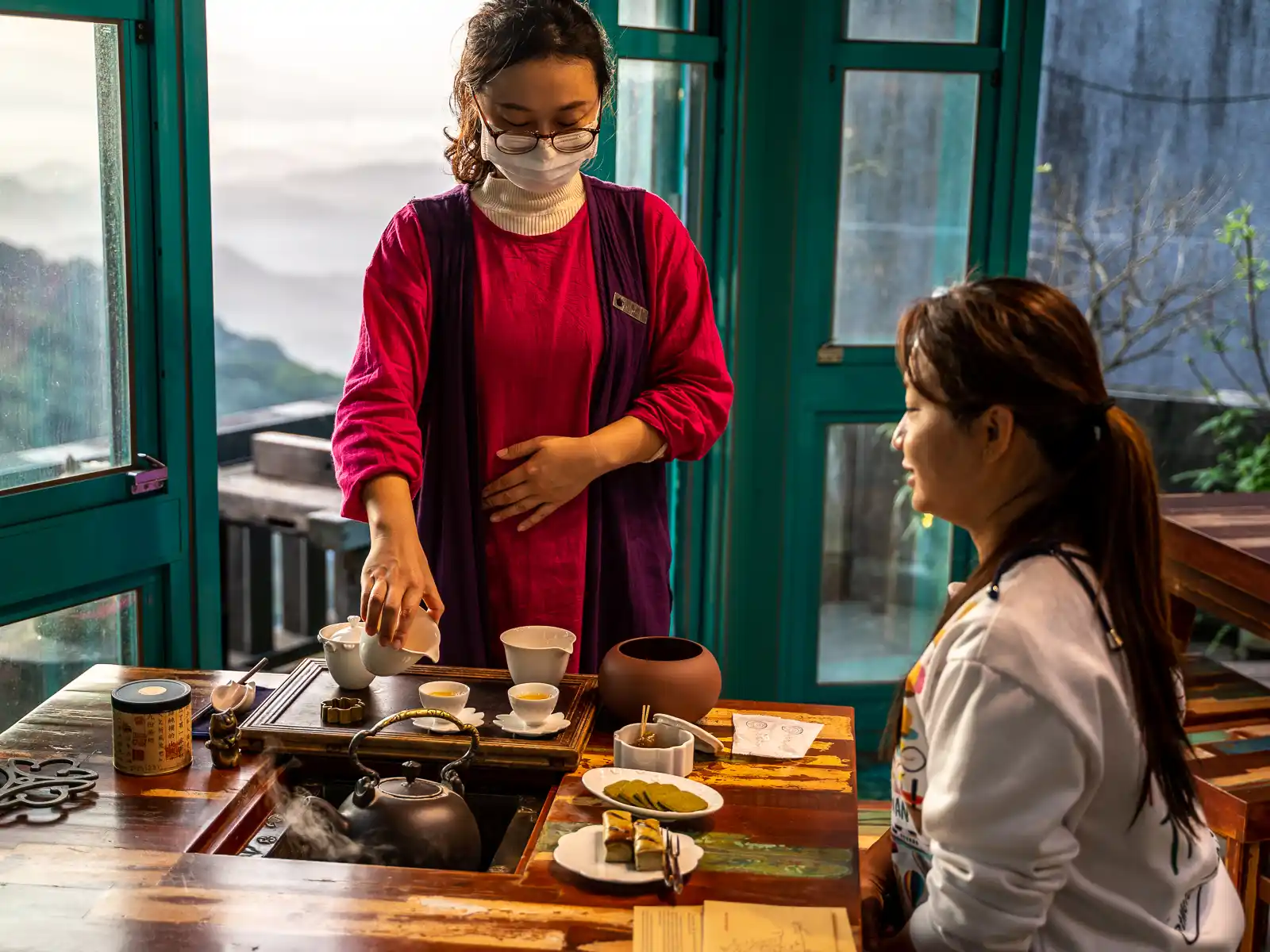
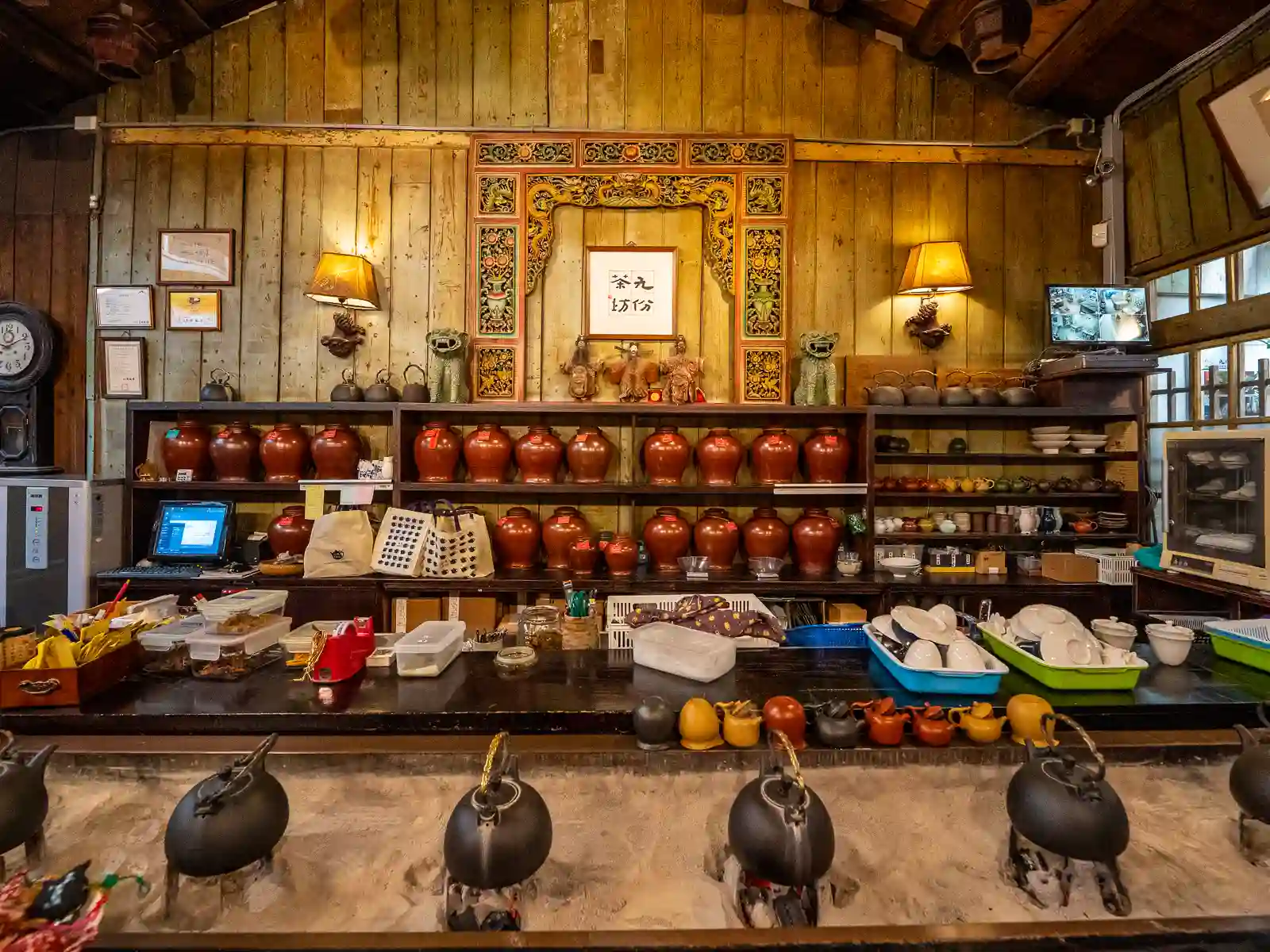
When owner Hung Chi-Sheng, initially traveled to Jiufen in 1979 to study painting, he was so taken inspired by the mountainous vistas that he eventually returned to open this tea house. His devotion to the integration of culture means the tea house operates according to three principles: tea, pottery and painting.
Operating out of a 100-year-old restored historic building, the Jiufen Tea House (also known as “Jioufen” Tea House), is the area’s most interesting and historied establishment. Upon walking through its main door, the tea house’s intricate and complex interior architecture immediately stuns the viewer—natural light coming in through the skylight illuminates the front display area while far in the back private tea booths are hidden behind lattice windows (made from fragrant Taiwan cypress no less), and antique wooden furniture. Moving further inside, a staircase descending over an indoor fish pond leads to the outdoor patio. In order to ensure structural integrity, the aging structure has been reinforced with steel, which since has been creatively painted over to maintain the warmth of the original construction.
The tea house features two floors with indoor seating, an outdoor patio, and a bright outdoor octagonal tea room made entirely from glass. Many varieties of Taiwanese are available, and guests are also allowed to bring their own tea leaves and only pay for brewing water. Delicious snacks are available as well, but the focus here is on tea and conversation.
South Street Delight Tea House in Datong District, Taipei City
Dihua Street’s Most Historic Tea House
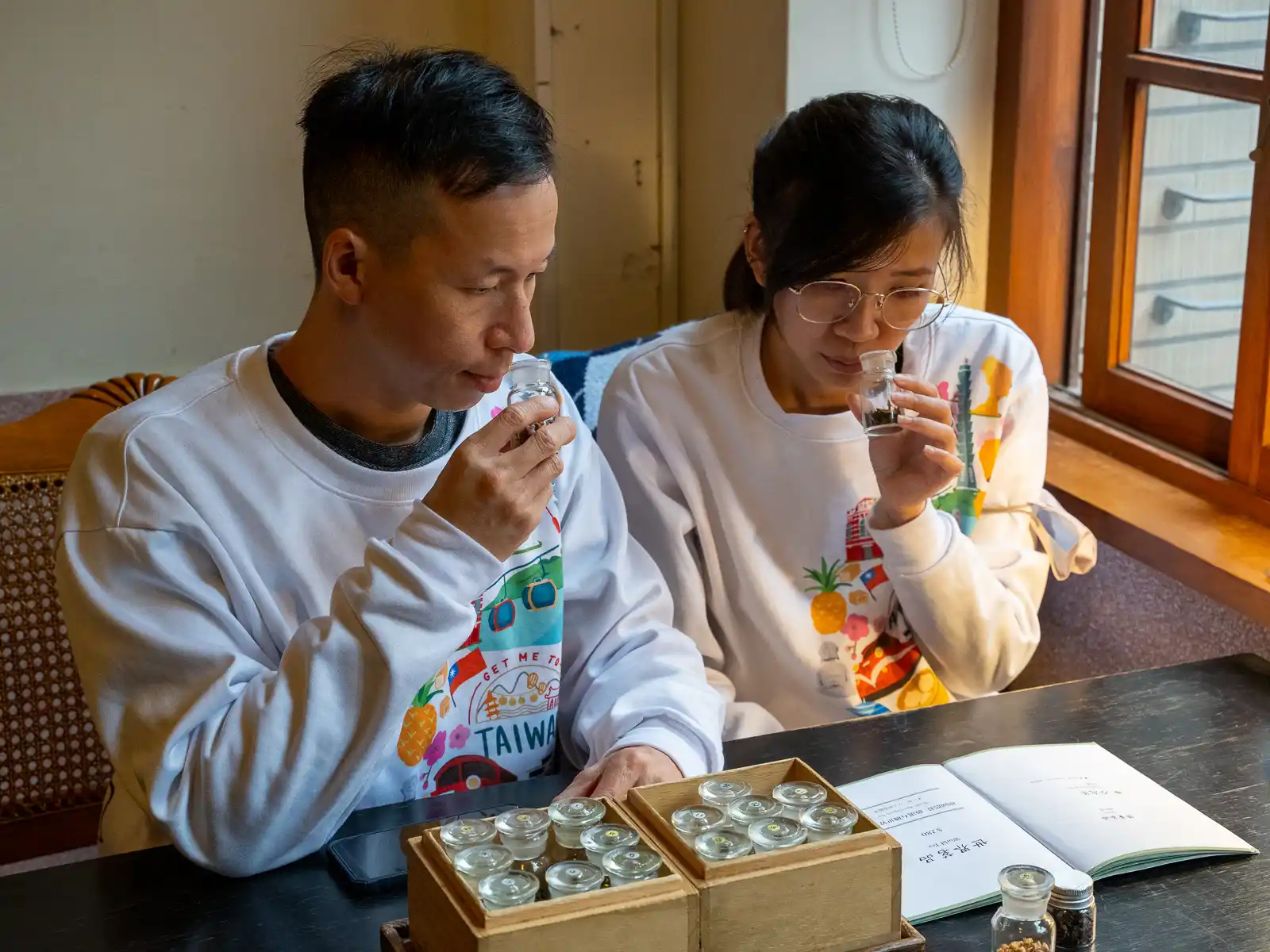
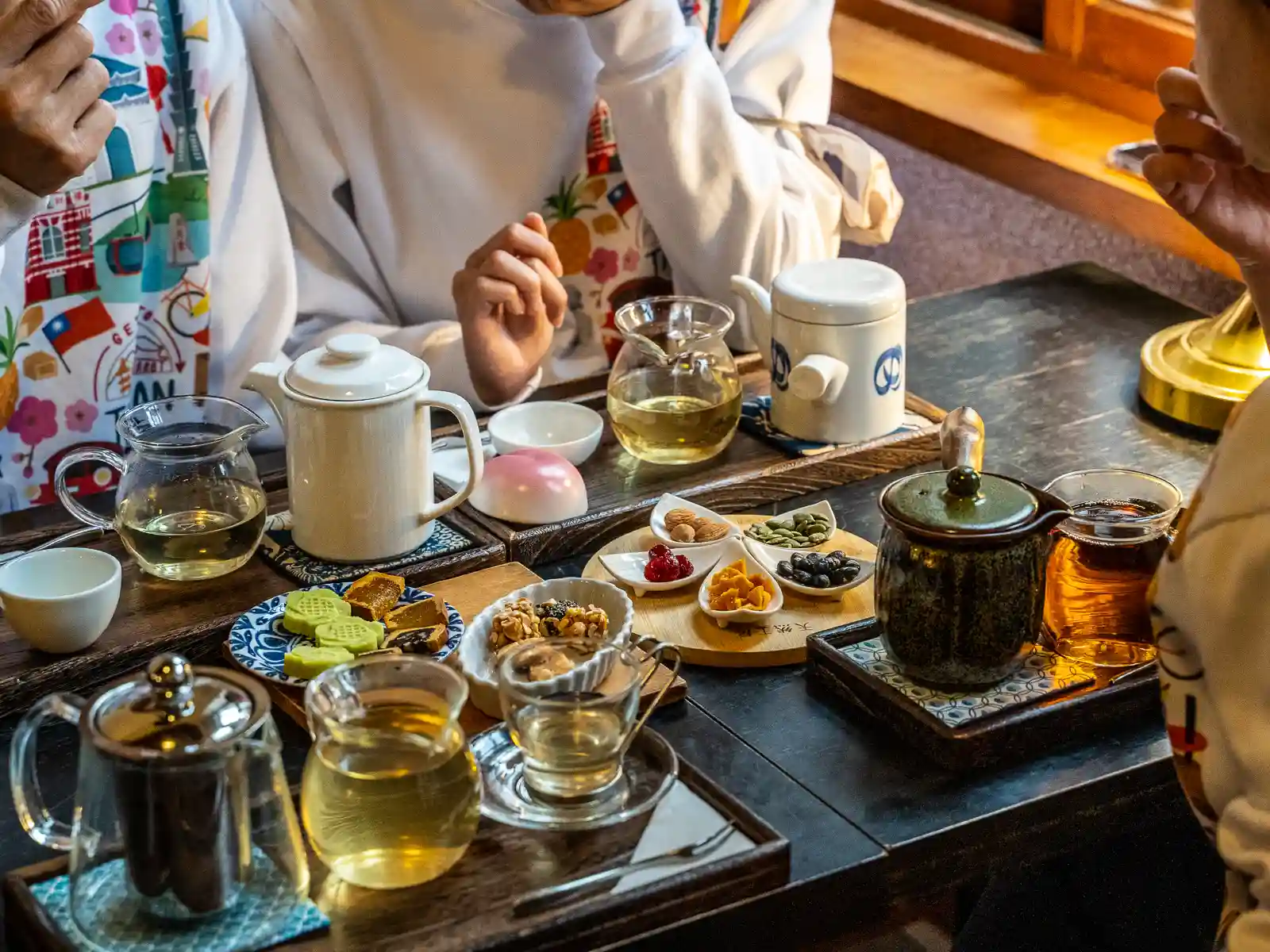
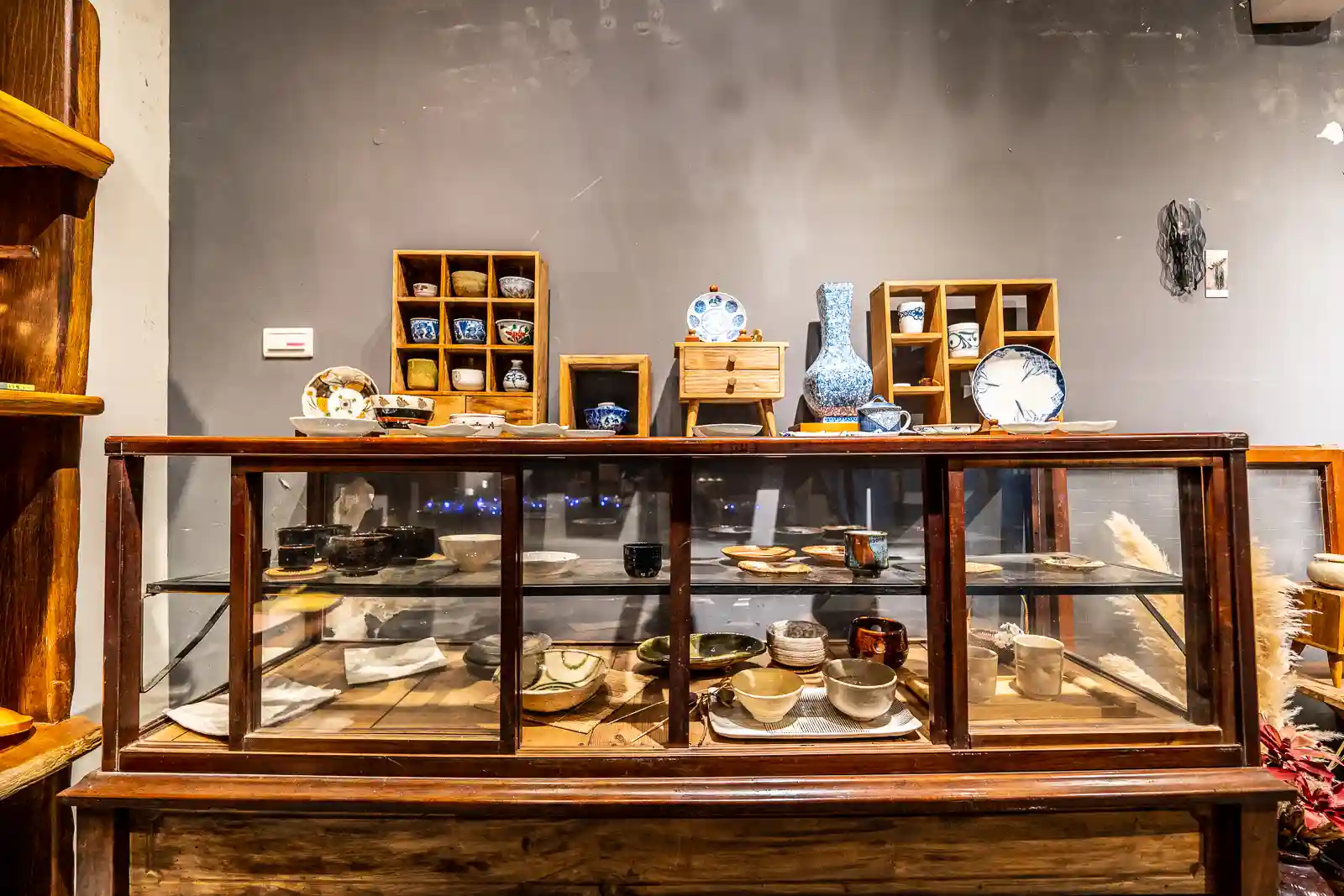

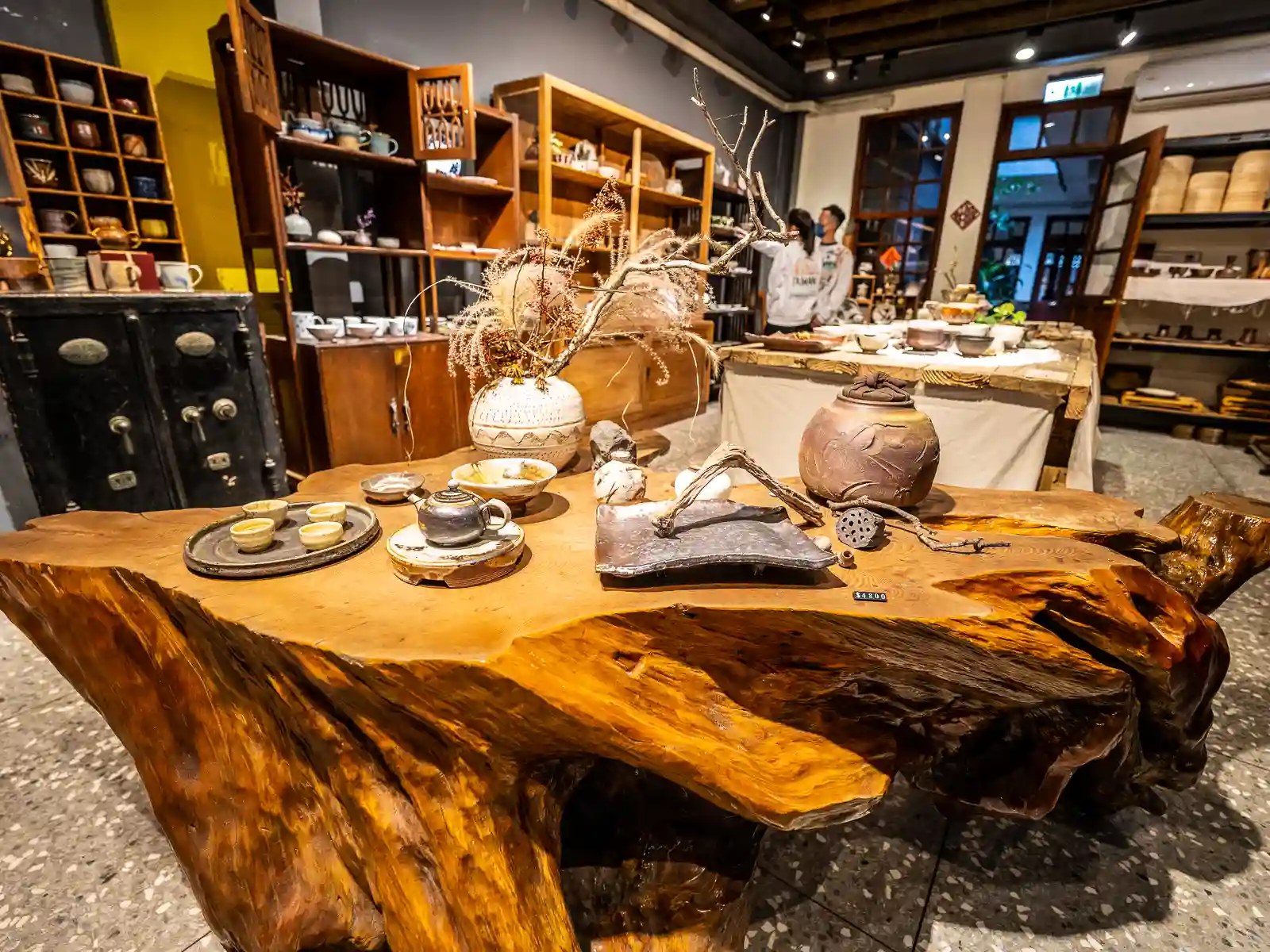
South Street Delight Tea House is a charming and cozy spot hidden inside a heritage building-turned-art space on Taipei’s oldest street, Dihua Street. The tea house’s casual atmosphere stays true to the area’s culture and history with its tastefully decorated interior featuring dark wooden furniture from different periods of Taiwanese history and exquisitely crafted serveware sourced from Japan and Taiwan.
This tea house is a popular spot for Japanese tourists and offers a wide selection of high-quality teas, all served with handmade snacks sourced from local pastry stores in the Da Dao Cheng area. The tea house’s menu and service are available in Chinese, English, and Japanese, making it a perfect spot to unwind and savor some delicacies.

